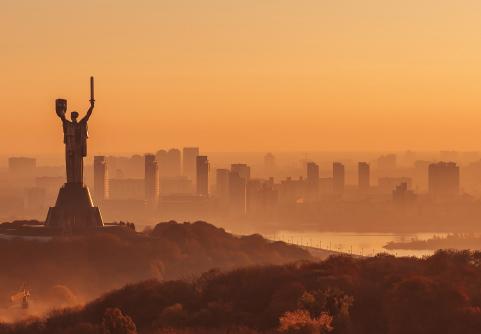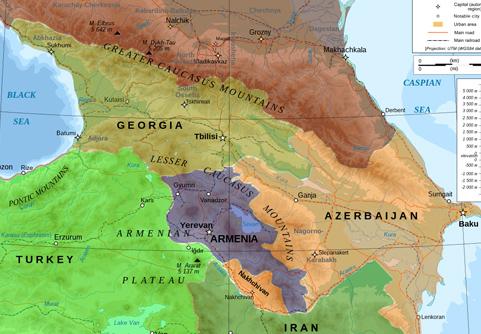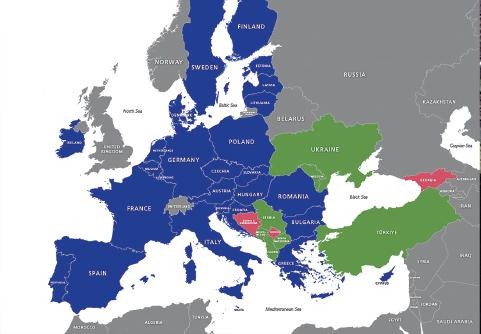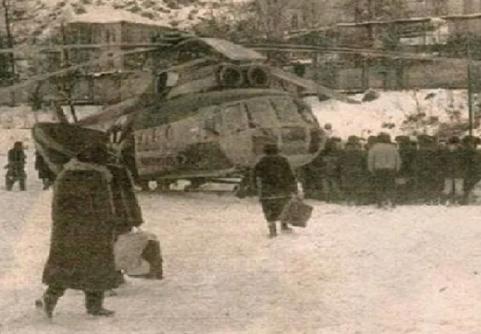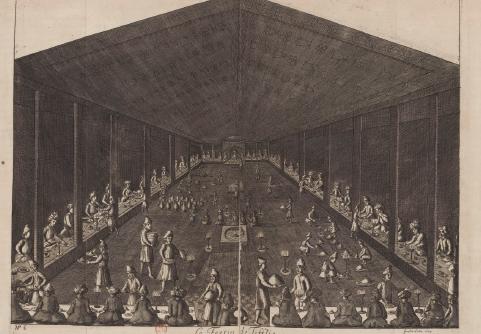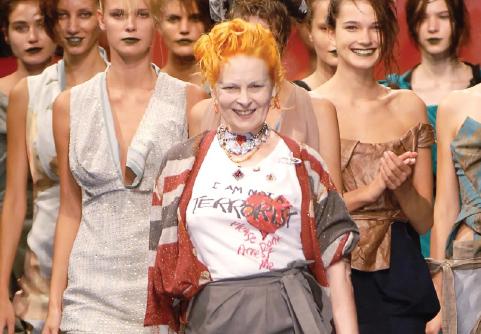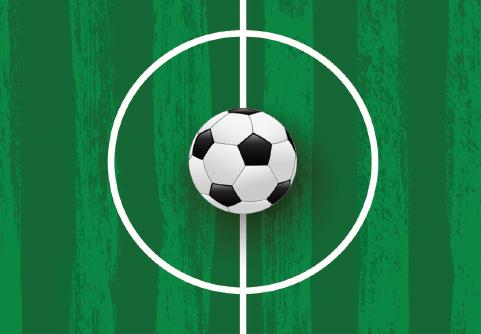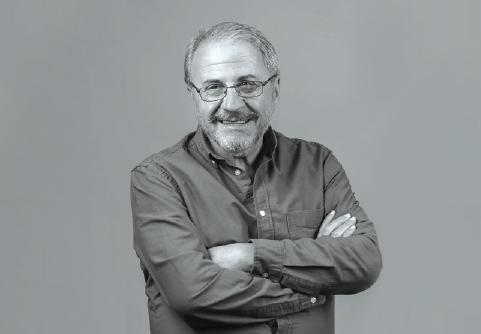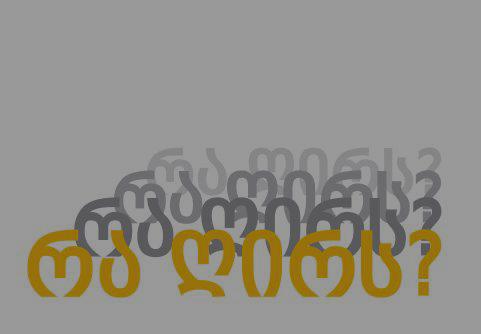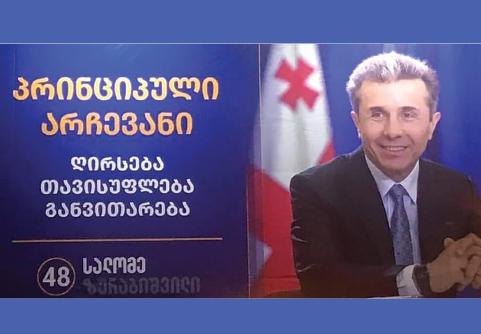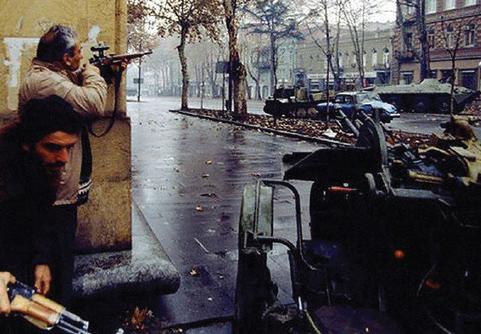
Author : Dodona Kiziria
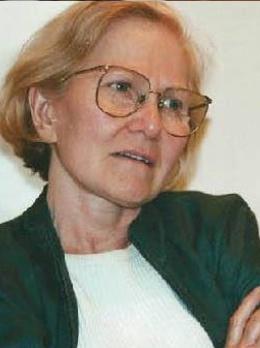
December 22, 2022, marks the 30th anniversary of the outbreak of the armed coup. The coup, which overthrew the legitimately elected government of Zviad Gamsakhurdia and set the country back several decades in just two weeks. Georgia, one of the leading countries of the post-Soviet space before 1991, the first in line for Western integration after the Baltic republics, almost immediately became the most backward, most unpromising, semi-wild territorial entity of the same space.
No one could have imagined that Zviad Gamsakhurdia's prediction a few weeks earlier, in which he painted an apocalyptic picture of what awaited the country if his opponents came to power (“violation of the state's integrity”, “total anarchy, especially in Tbilisi”, a city “divided into districts”, where the government would be in the hands of “armed gangs”, “unprecedented looting and plundering of the population”, total disruption of electricity, gas, communications, food supplies, medical services and law enforcement) would come true so soon – and with such chilling precision.
The Putsch made this terrible vision a reality. A reality that lasted, in varying doses, until November 23, 2003, and which would never have triumphed without our active participation, our stupidity, or our hypocrisy.
At one of the civic commemoration events of the Chavchavadze Center, one of the then opposition members recalled with regret, “I was under the influence of the Tbilisi ‘elite’ and it was only on the morning of September 22, 1991, amid the roar of guns from Kashveti towards the Supreme Council, that I realized I had been deceived and my youthful idealism had been misused.”
Today, no one is talking about investigating certain facts (such as who fired on peaceful rallies of supporters of the ousted government in the months that followed, killing dozens of innocent demonstrators). And there is no talk of political responsibility (how can that be – the Putschists are scattered on different sides of the political spectrum, some naturally, others cunningly by the "native" Russian security service).
It's just for the sake of knowing. Knowing to remember. Remembering so that we don't repeat the same things, so that we don't go round in circles. So that the enemy will not be able to manipulate us in the future and use our naive idealism to destroy our own country (as he did at least once after the fateful year of 1991, this time without weapons).
On the occasion of the 30th anniversary of one of the most tragic dates in Georgian history, here is an excerpt from Dodona Kiziria's book, The Putsch (Artanuji Press, 2018).
Zaza Bibilashvili
Day One
I arrived in Tbilisi late on the evening of December 21, 1991. That was the same night that the coup, later known as “the Putsch” in Georgia, began. At the time, I was working with the Voice of America and was aware of what was happening in Tbilisi. When the management of that organization found out that I was on my way here, they gave me the task of gathering material on current events and, if possible, to do a couple of interviews.
The next morning I went to Rustaveli Avenue. What I saw was a surreal scene: A tank in front of the Government House, armed men, not wearing military uniforms, standing in a group in front of Kashveti Church, walking back and forth near the tank. From time to time, the sound of gunfire could be heard, mainly from the Kashveti Church building, where, I later learned, Tengiz Kitovani's guards had set up an ambush. In the church yard there were two cannons pointed in the direction of the Government House. Nevertheless, there were quite a few people standing on the pavements nearby. Most of them, like me, were stunned by this incredible sight – they were shooting in broad daylight, in the middle of the city, on Rustaveli Avenue! I asked one of the people standing there who was in charge of this operation, and they said that the headquarters seemed to be in the Tbilisi Hotel.
I was able to enter the hotel unhindered, no one stopped me, no one asked me for my documents. There were people at the entrance, but I didn't see anyone who looked authorized, so I went up to the second floor. There, in a wide corridor, were several tables around which young men and women were sitting; some were talking, some were laughing, and at one table they were playing cards. Almost everyone was smoking, and the air was rather heavy. Their carefree expression seemed to me completely paradoxical in the context of what was going on outside. For some reason, I did not think they could give me the information I needed, and I went down the corridor. The door to one of the rooms was open, in the depths of it sat two very young, 18-19-year-old boys. The third one, who seemed to be very drunk and could not stand firmly on his feet, shouted from the corridor outside the open door: “Are you Svans?! You are fools, not Svans! A real Svan would never stand by that bastard. F...ck you!" The boys didn't make a sound.
I passed without a word. At the end of the corridor, the door to the corner room was slightly ajar. I knocked and, when no one answered, opened the door and entered. There was no one in the room, though judging by the unmade bed, the cigarette butts and the used glasses on the table, someone or several people must have spent the night there. From the open window you could see the Government House, the building of School No. 1, and all the theater of the absurd that was going on there. You probably remember that the wall of the Tbilisi Hotel overlooking the Alexandrovsky Garden, now the 9th of April Garden, is slanted, and the only window in that particular room was open.
I stood there for a while, watching what was going on outside. I thought I was dreaming! From time to time I heard the crackling of machine guns, shouting and swearing. Two or three times I heard the sound of a grenade exploding. By the way, bullets don't buzz, they whistle – whew, whew – they make that sound. One or two came very close to the window, almost under my nose. I realized it later, when I came home late at night, then I was so dizzy I thought I was in a dream. Suddenly I heard someone's voice: "Hey, what are you doing there, who are you?!" I turned around and saw a young guy coming into the room. I immediately began to explain – I'm from the Voice of America, here are my credentials. I want to see who is in charge of this case and record him.
At the word America, his eyes widened and his face expressed joy or admiration: “From America? Really? I'm going to call our boss now,” with these words he left the room and returned five to ten minutes later with Mamuka Areshidze, now known as a political expert. We introduced ourselves to each other. When I asked about his profession, he said he was from television, working in a TV studio. He immediately agreed to give an interview and I recorded it. When we said goodbye, he told me to stay away from the window because it was dangerous, and then he left the room. The young man who brought him stayed in the room and turned to me, “I want to ask you something? I want to start a good business here in Tbilisi. If I get financing from America, I will give you a share in it. It will be a very good business. Now we will win, and I can start right away.” – I'm very sorry, I don't know anyone in this field and I can't help you, I said and walked out into the corridor.
The drunken jailer was no longer there. The door to the room where his two prisoners were sitting was closed. The young men were still at the table, doing the same thing – laughing, smoking and playing cards. Suddenly Tengiz Sigua, Eldar Shengelaia and several other unknown men came out of a room. At some point I decided to follow them and ask for an interview, but they hurried down the stairs without looking back and disappeared somewhere. I followed them out of the hotel and into the street.
Outside, the surreal scene continued. The crowd thinned out. Two or three trees were smoking in front of the Government House. Overwhelmed by what I had seen and heard, I walked down the street towards Rustaveli metro station. There was no transport, but I phoned an acquaintance there and asked him to take me home if he could.
“All the elite are here.”
On December 23-24, the meeting places of supporters and opponents of President Gamsakhurdia became clearly identified. The former were camped on the stairs and in tents in front of the Government House until December 21. As soon as the military confrontation between the authorities and the opposition began, they dispersed and started gathering in different streets and squares in Tbilisi in order to organize rallies in support of the president.
The main headquarters of the opposition and supporters of Kitovani-Ioseliani was then the Tbilisi Hotel and Television building on Lenin Street, now Kostava Street. Another large group of opposition supporters gathered in Republic Square (now Rose Revolution Square) in front of the ugly arches later demolished, which were popularly nicknamed Andropov's ears. They really did look like long hanging ears, ready for eavesdropping.
I mostly walked from the TV studio building to the city center, to Rustaveli Avenue and its environs, and wherever I could I tried to record interviews or just listen to what people were saying to get a sense of the general mood. A good friend of mine gave me a jeep called Kolhoznik and I drove it back and forth.
One evening, it was about six or seven o'clock, I parked my car in front of Building 1 of the GPI (the former Georgian Polytechnic Institute, now the Technical University) and walked down to the television building. On the way I passed two men, one of them short, stocky and wearing a military uniform. They were both smoking cigarettes and laughing heartily at something. I had already reached Khiliani Street when I heard quick footsteps behind me. I looked around to see if anyone was following me, and saw this stocky man coming towards me, breathing heavily as if he had run for miles. I wasn't frightened because there was a television building nearby and I could see people gathered on the steps in front of the building. Someone was standing at the microphone, urging the crowd to fight and free themselves from tyranny. There were a number of young people sitting along the iron fence, laughing. I had nothing but a portable tape recorder and my car keys. What could I lose, I thought.
A few seconds later it became clear that this man was not interested in me at all. He ran past me, bypassed the people gathered in front of the TV building, ran up to the speaker, said something in his ear and grabbed the microphone: “People, those murderers killed our people in Shavnabad! The Zviadists killed 60 men! We must take revenge!” There was an outraged shout: “We must overthrow him! Dictator! Bloodthirsty!” If I hadn't seen that man laughing a few minutes ago, I might have thought something very bad had happened. He was screaming in such a doomed voice and pounding his fist on his chest that he deserved an Oscar for his performance. The audience shouted for a while: “He must be caught and hanged, this Ceausescu, this bastard,” but they soon calmed down and after a few minutes were listening to another speaker. She was a young, dark-skinned woman with black hair that fell below her shoulders. She too spoke out against the president and his “Communist” methods, but in a more elegant way, albeit with greater emotional impact.
When she had finished speaking, the woman came down the stairs, walked down the street and was about to pass me when she turned to me and smiled: “Are you Dodona, Dodona Kiziria?” – Yes, I replied in surprise. “I have read your poems, they were printed in The Literary Georgia, and I recognized you from your photo. I'm a poet too,” she said, holding out her hand. “I'm glad you're standing next to us,” she said goodbye and walked off towards the zoo. A few years later, I saw this lady again at the Institute of Literature, when I gave a lecture on Giorgi Saakadze at the invitation of Rostom Chkheidze. She made some kind of affected remark that she did not see love and pride for our history in my words. After my reply, she got up and defiantly left the room. I did not remember her name then and I do not remember it now.
That evening, I stood outside the television building until late in the evening, listening to the speakers and participants talking to each other. I overheard the following dialogue: a young woman aged 20-22 said to a woman of the same age: “Let's go to Rustaveli and see what's going on there.” The other replied: “What should we do there, all the elite are here.”
In fact, every day you could see the faces of famous and honored directors, actors and writers, but that evening I did not notice anyone except my dark-haired colleague, the poet. But there were plenty of supporters of the “elite”.
